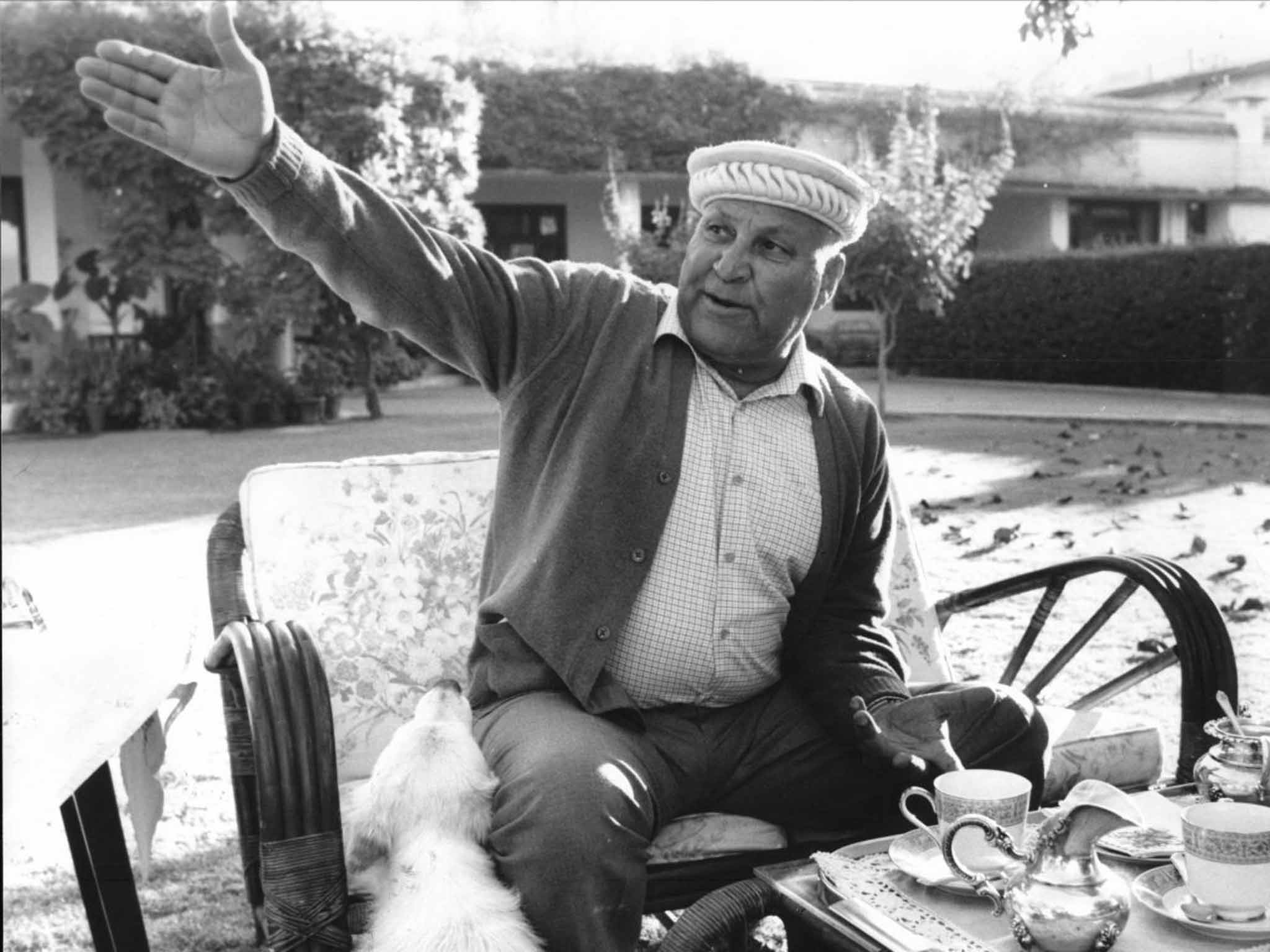The Wali Ahad of Swat: Crown prince of what is thought to be the last princely state to be recognised under the British Indian Empire

Miangul Aurangzeb was the last crown prince of the last princely state, so it is believed, to be recognised under the British Indian Empire. This was Swat; Aurangzeb was born not long after the Chief Commissioner of North-West Frontier Province proclaimed his grandfather its Wali Ahad, or hereditary prince, entitled to a nine-gun salute, at a public durbar in the mountain-ringed city of Saidu Sharif, on 3 May 1926. The Wali had local prestige and popular loyalty as the grandson of Swat's 19th-century Akond, or spiritual leader, Abdul Ghafur.
The Akond lived in British memory because in 1863 he "threw in his lot with the enemy" – the "Fanatical Colony" of Sittana – and the British Indian Army's General Sir Neville Bowles Chamberlain, attempting to dislodge this danger to the Raj, was seriously wounded.
Likewise General Sir Bindon Blood's Malakand Field Force, accompanied by a young subaltern, Winston Churchill, was repulsed in 1895 by the Akond's eldest son, called the Miangul, from "The Gate of Swat" at Landakai.
After Swat acceded to the new nation of Pakistan when the British left in 1947, it kept its own governance as before, and Aurangzeb's father Miangul Jahanzeb succeeded as Wali in 1949. Aurangzeb became ADC to Mohammed Ayub Khan, soon to be Pakistan's second President, while Ayub was Pakistan's army Commander-in-Chief from 1951. By 1954 Ayub was Defence Minister, and Aurangzeb in 1955 married his daughter, Nasim. As Begum Nasim Aurangzeb she accompanied Ayub when President from 1958, on a state visit in 1961 to the US.
Aurangzeb, bearing, as heir, the title Wali Ahad, was Regent of Swat while his father was abroad in 1954. He joined his father the Wali to welcome Queen Elizabeth on a royal visit to Saidu Sharif in 1961. He won affection from the valley's 250,000 population for his wit and engaging personality. But he was to live to see the beautiful valley, where his family is considered to have presided over a golden age, fall to lawlessness and ruin.
"I see sadness not only in Swat but all over Pakistan," he said in 2009. His father, Miangul Jahanzeb, died in 1987, but the succession was by then at an end because Swat was absorbed into federal Pakistan in 1969 after Ayub Khan resigned. It was the start of a decline: constantly changing federal governments and too-slow courts failed to replace the Wali's local autocratic justice, and many of the schools he and his predecessors had opened for the education of both boys and girls were forced to close.
The old enlightened rule of the Wali was something to which the Queen alluded on her visit, and which was remembered by Ziauddin Yousoufzai, father of the teenage campaigner Malala Yousoufzai after his daughter was shot on her way to school in 2012. The Taliban, who had seized the valley in 2007, had banned women's education. Malala was treated in Britain for a head wound, and recovered, and a few days ago was awarded the Nobel Peace Prize.
A campaign by the Pakistan army in 2009 to rid Swat of the Taliban sent both Aurangzeb many of his family's erstwhile subjects into exile elsewhere in Pakistan. He took refuge in his house in Islamabad. The campaign's success was short-lived, as more Taliban entered across the country's long border with Afghanistan.
Captain His Highness Miangul Aurangzeb Akhundzada, Wali Ahad and Amir of Swat, the eldest of four brothers, was educated at Wadudia High School, then Welham Boys' School, Doon School, Dehra Dun, and St Stephen's College, Delhi. He trained at the Pakistan Military Academy at Kakul outside Abbottabad, and was commissioned as a 2nd Lieutenant into the Guides Cavalry (Queen Victoria's Own) in 1950, but left the army in 1956 and followed a political career, representing Swat in the West Punjab assembly until 1958.
He was then elected four times to Pakistan's National Assembly, and, having opposed the government of Zulfikar Ali Bhutto, was a member of the Majlis-e-Shura (parliament) of General Zia-ul-Haq, who seized power in 1978. Aurangzeb became Governor of Baluchistan from 1997-99, and of North-West Frontier Province (now Khyber Pakhtunkwa) in 1999, until the military coup of General Pervez Musharraf, of whose policies he disapproved.
The Swat principality's name, titles and remoteness have long appealed to the whimsical British literary imagination, from Edward Lear's nonsense poem of 1862 toying with the title "Akond" – the meaning of which, "scholar" or "teacher" – did not interest him; to Churchill's harrumph of 1895: "the people of lower Swat, deserted by the Mad Mullah ... were completely ... subdued"; to Alexander McCall Smith's 2011 novel A Conspiracy of Friends: "The Wali .., ruled over a territory that eventually ceased to exist..."
In Italy an interest in Swat's sculpture and art, encouraged with funds and premises given by the last Wali, Aurangzeb's father, has produced and restored a museum filled with bas-relief Gandhara Buddhist works. Despite an earthquake in 2005 and battle-destruction in 2009, the museum, which opened in 1963, was ready once again in November 2013 to open to the public.
Miangul Aurangzeb, Wali Ahad of Swat: born Saidu Sharif 28 May 1928; married 1943 daughter of Khan Bahadur Hazrat'Ali, Swat chief minister (two daughters), secondly Nasim Begum (one daughter, three sons); died Islamabad 3 August 2014.
Join our commenting forum
Join thought-provoking conversations, follow other Independent readers and see their replies
Comments